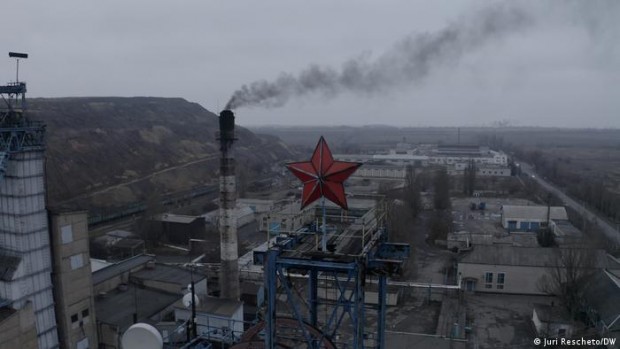|
© – |
Almost half of Russians do not believe in democracy, and many still idealize the Soviet era. What is life like today – 30 years after the end of the USSR? A Russian, a Georgian, an Estonian and a Ukrainian told DW.
The photo became world famous: three statesmen from Russia, Ukraine and Belarus signed the Treaty of Minsk (also known as the Belovezhskaya Pact), which announced that the USSR was ceasing to exist. On December 8, 1991, Boris Yeltsin, Leonid Kravchuk and Stanislav Shushkevich signed the death certificate of a country whose heart had virtually long since stopped beating.
The Russian Igor Tishkovets, the Estonian Pile Mafuchi, the Georgian Irakli Rusadze and the Ukrainian Sergei Sobol saw the historical photo only in the old chronicles – at that time they were not yet born or were very young children. However, they have a very personal attitude to the declining Soviet era.
I am not a supporter of the Soviets, I do not grieve for the Soviet era. It is really a big, proud country, but I do not share its ideas, says Igor Tishkovets. However, he regrets that this country has come to an end. Igor loves his homeland – the Siberian city of Novosibirsk, where large industrial zones and research centers were built during socialism. But communist ideology is foreign to him – as an Orthodox Christian, he supports a rather conservative Russia.
Igor argues that her values - family, faith in God and hierarchy – are more important than democracy and freedom of opinion.
Surveys show that only half of Russia’s population believes in democracy. Most Russians would prefer a strong political system, as in Soviet times. Igor shares the same opinion: “Democracy is a great fiction. We, the Russians, do not believe in the true power of the people and we need a strong leader in whom to believe.”
Thirty years after the end of the Soviet Union, Russia is not economically weak. But the gap between rich and poor is widening – about 20 million people live below the poverty line. According to Igor, this is not a cause for concern: “For me, ideological strength is more important than economic well-being. I make my own money without the need for the state,” he said. Igor works as a wedding DJ and earns well He is convinced that Russia offers enough opportunities for people who know what they want.
In just a few weeks, Irakli Rusadze will present his new collection at Paris Fashion Week. The 30-year-old Georgian is a designer by profession.
He says: “I find ideas and inspiration in our history, in Soviet, pre-Soviet, but also post-Soviet times. After 1991, everything started to change,” Irakli said. “I was just born then. The Soviet Union collapsed, but it still felt everywhere and in everything – in the many Soviet buildings, in conversations with older people. All this is very authentic and inspires me in my profession as a fashion designer.
Irakli says that especially the elderly still idealize the good old Soviet era, in which there was work for all and free health care. But the thinking of young Georgians is different.
“I think that the creative and progressive people in the USSR did not have a great chance – their freedom was severely limited. We Georgians have the opportunity to catch up today – because there are still many things that separate Georgia from Europe.
Estonian Chicken Mafucci attends theatrical rehearsals twice a week on the small but modern stage in Narva, on the border with Russia. The theater is part of an integration center – a place where not only two nations meet, but also two worlds – Estonians and Russians.
According to Pile, the play is about the fate of a Russian-speaking minority who are not well received in the Baltic state, even though they have lived there for years. To this day, the two peoples remain separated not only by language barriers, but also by cultural and historical differences.
Chicken Mafuchi is one of those trying to change that. Three years ago, the Estonian teacher moved from the capital Tallinn to Narva. “Only four percent of Estonians live in Narva – the rest are Russians. I feel strange – as a minority in my own country,” she said.
For her, the integration of Russians is one of the most pressing social problems in Estonia. Many of them have not received an Estonian passport for 30 years, mostly because they need to know Estonian. This affects 7,000 people who have no right to vote or work in the administration. However, Chicken Mafuchi believes in the common future of Estonians and Russians – he believes that love will displace division.
Sergei was born in Donbass, a war-torn area since 2014. Today he lives in the small mining town of Pershotravensk. “In Soviet times, we miners were fine. Ukraine was rich. Every miner in the east could buy a plane ticket to Lviv and spend the weekend there,” said Sergei Sobol. years of independence our country was looted and failed economically. So far, we have never had a reasonable government, “he added.
Sergei’s workplace is 30 meters underground. “Mining remains dangerous. The important thing is to have security, to do our job and to return home safely,” said Sergei, 35. He earns good money at the Stepnaya mine, about 800 euros a month.
The mine where Sergei works is one of the few that are profitable, but it will be closed in three years. Ukraine wants to end the coal industry. The fate of thousands of families who make a living from it is unknown. However, Sergei hopes that not all mines will be closed and he will be able to find work elsewhere. He has no illusions that miners will live a royal life, as in the USSR. But by no means does he want to go back to the old days and the Soviet era.
–


